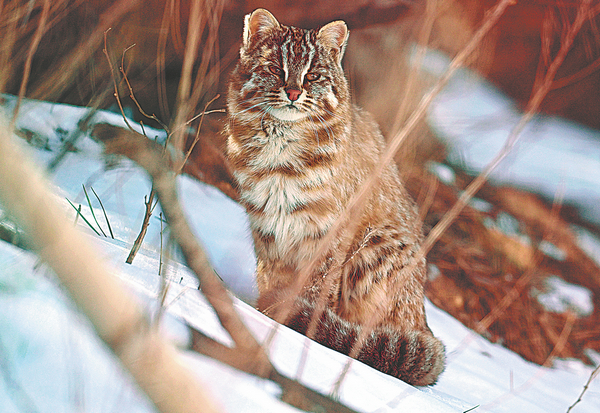

"I think this is a little-known side of Beijing," says Luo, who is proud that such wildlife can be found so close to the capital city.
Luo sent the photo to the journal Science, along with a 300-word essay titled, The Hidden Olympic Spectator, which was published on July 23, 2021, the opening day of the 2020 Tokyo Summer Games.
She also shared the discovery with the 2022 Beijing Winter Games organizing committee, explaining its significance in terms of biodiversity, helping them to build a picture of the relationship between winter sports and nature.
Luo's relationship with this Winter Olympics has not been all hard work. She has also found time to indulge her passion for winter sports. After several tests, she was appointed as a technical officer on the Olympic alpine skiing referee team, bringing her even closer to the action. For Luo, being surrounded by hundreds of athletes and spectators was a thrill-a marked contrast to her solitary fieldwork.
"I was deeply touched by the exchange and communication at this grand event that spans races, languages and countries," she says. "Such an event causes me to hope that we can leverage our strengths to ensure continued coexistence between wilderness and human settlements."
Now that the 2022 Winter Olympics have ended, Luo plans to continue her leopard cat research in Yanqing district, just as her many European counterparts have carried out studies on wildlife around ski resorts near the Alps.
"The alpine skiing site on the outskirts of Beijing will be an excellent place to study how wild animals share the same space with humans," she says. "As we watch the skiers racing down the slopes, I know that the striding leopard cat will be watching us."